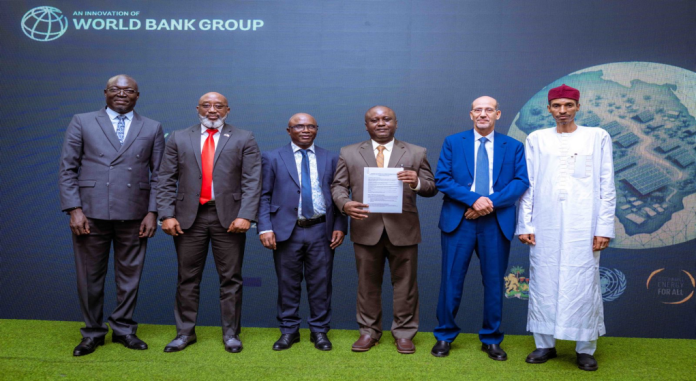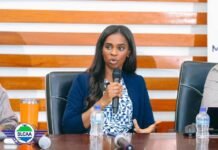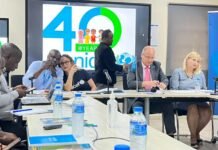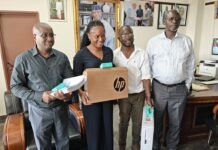By Amin Kef Sesay
In a landmark move to accelerate energy access across West and Central Africa, Ministers of Energy and Finance from Sierra Leone, Central African Republic, Chad, Liberia, Mauritania and the Republic of Congo have endorsed the “Freetown Declaration on Regional Collaboration for Scaling Distributed Renewable Energy.”
The high-level ministerial workshop, held in Freetown, Sierra Leone, was convened under the auspices of the World Bank Group and Sustainable Energy for All (SEforALL). The declaration seeks to establish a collaborative platform to scale up Distributed Renewable Energy (DRE) solutions, with a strong emphasis on ending energy poverty and fostering job creation in the region.
The Ministers pledged to leverage financial and technical support from the World Bank Group and SEforALL to facilitate the expansion of DRE solutions. The initiative underscores the vital role of public-private partnerships in achieving sustainable energy access across the region.
Distributed renewable energy solutions, such as mini-grids, offer a cost-effective, scalable and sustainable approach to expanding energy access to underserved communities. The Freetown Declaration highlights the need for increased regional cooperation, technical expertise and private sector involvement to meet the region’s growing energy demands.
Commenting on the significance of the declaration, Hon. Kandeh Yumkella, Chairman of Sierra Leone’s Presidential Initiative on Climate Change, Renewable Energy and Food Security, stated:
“Distributed renewable energy sources, such as mini-grids, offer a fast, flexible and cost-effective way to provide energy access to underserved communities. Given the high geographical concentration of the West and Central African electricity access gap, donors and development finance institutions need to come together and maximize impact by broadening and deepening access agendas at regional and national levels. This is exactly what the declaration that has been endorsed today proposes, and I look forward to seeing this working in Sierra Leone and across West Africa.”
The World Bank has also recognized the potential of regional collaboration to attract global investment. Robert R. Taliercio, World Bank’s Country Director for Ghana, Liberia and Sierra Leone, emphasized the importance of aggregating capacity needs across countries.
“Given the fragility-related risks and small market sizes of many West and Central African countries, several leading international distributed renewable energy firms have refrained from operating in these countries so far. The World Bank’s approach of aggregating capacity needs across multiple countries demonstrates that regional aggregation can provide a large enough demand to create greater economies of scale and attract leading international private players. This approach will enable smaller and more fragile countries to access infrastructure at a lower cost. I look forward to working with in-country and regional partners to bring this declaration to life.”
By pooling resources and promoting cross-border cooperation, the initiative aims to reduce project costs, lower investment risks and incentivize private sector involvement in countries that would otherwise be deemed too risky for large-scale energy investments.
Damilola Ogunbiyi, CEO of SEforALL and Special Representative of the UN Secretary-General for Sustainable Energy for All, stressed the need for bold and inclusive policy reforms to attract private sector participation in energy access initiatives.
“Governments play a critical role in achieving Sustainable Development Goal 7, which aims to ensure universal access to affordable, reliable, sustainable and modern energy. By crafting progressive policies and regulatory frameworks, governments can enable the successful rollout of energy projects while incentivizing the private sector. I welcome this declaration that will facilitate knowledge sharing and best practice exchange in the region and within countries. I look forward to collaborating with development partners to support Governments to craft world-class policies to attract investment in sustainable energy.”
Currently, an estimated 220 million people in West and Central Africa lack access to electricity, representing approximately 45% of the region’s population. This energy deficit has become a critical challenge, as access to electricity is essential for economic development, education, healthcare and job creation.
To address this gap, the region has witnessed growing calls for more ambitious energy access targets. The Dakar Call to Action by African Heads of State aims to provide electricity to an additional 85 million people annually over the next eight years. This requires an unprecedented mobilization of public and private investment.
Additionally, the “Mission 300” initiative, announced in April 2024 by the World Bank Group and the African Development Bank Group, aims to provide at least 300 million people in Africa with electricity access by 2030, with a specific focus on 100 million people in West and Central Africa.
The Freetown Declaration aligns with these ambitious goals, with its emphasis on collaborative action, regional cooperation and private sector engagement. By prioritizing distributed renewable energy, the region aims to close its energy access gap while promoting sustainable development and economic growth.
This declaration is a significant step toward addressing energy poverty, fostering sustainable development and enhancing the livelihoods of millions in West and Central Africa. The success of this initiative will depend on effective regional collaboration, timely policy reforms and mobilization of resources from development finance institutions, donor agencies and private investors.






